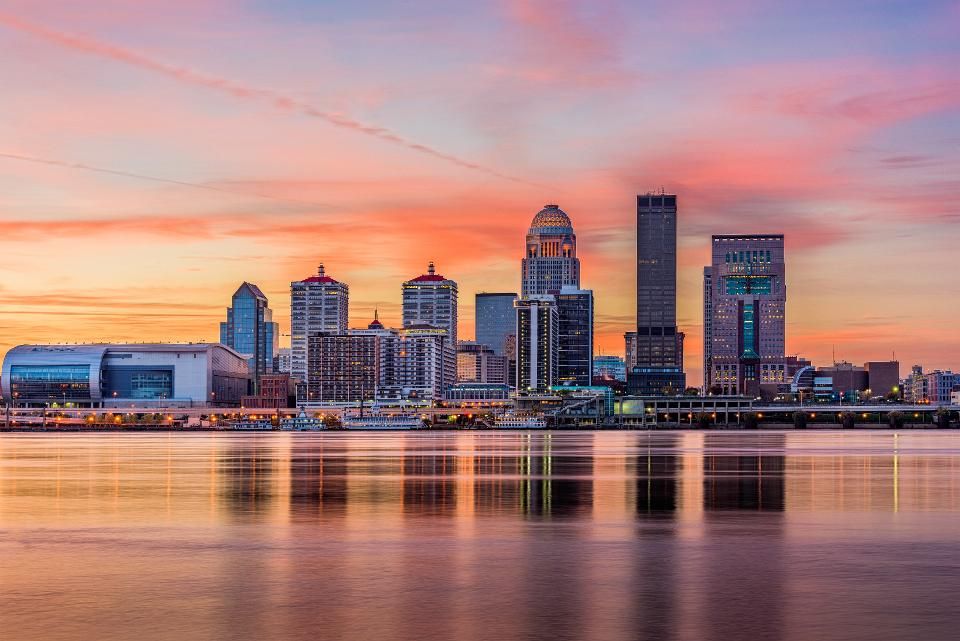10 Most Progressive Smart Cities in the USA
The United States of America is one of the biggest economies of the world, right at the forefront of new technological inventions. Being home to a growing, largely urban, population, the country is utilizing its resources to transform its cities into smart cities. Explore the top 10 most progressive smart cities in the USA.

 Top 10 Most Progressive Smart Cities in the USA
Top 10 Most Progressive Smart Cities in the USA
1. New York:

The Big Apple is one of the leading smart cities in the world. Owing to its scale, the NYC government has taken steps to decentralize leadership. The city’s smart city initiatives are split between the Mayor’s Office of Sustainability, the Mayor’s Office of Recovery and Resiliency, and the Mayor’s Office of the Chief Technology Officer. Collectively, they have incorporated many transport innovations and are now focusing on smart water, waste, and electric lighting management.
2. San Francisco:

San Francisco is one of the most progressive smart cities in the USA. The city was a finalist in the 2016 Smart City Challenge, receiving funding of USD 11 million from the U.S Department of Transportation. These funds were used to launch the SFpark project, which makes use of sensors to create digitized parking spaces. These smart parking spaces are managed through demand-responsive pricing. Since the launch of the project, 8,200 parking spots on the street have been successfully digitized.
3. Boston:

Boston’s approach towards becoming a smart city revolves around its citizens. The city believes that a truly smart city should allow its citizens to decide what “smart” means to them. The city has expressed these ideas through an experiment known as Beta Blocks which attempts to build meaningful relationships with citizens. The first event of this program was the “Robot Block Party” that invited citizens to discuss robotics, artificial intelligence, and autonomous vehicles.
Also Read: 10 Most Expensive Cities in The US For Parking
4. Chicago:

In 2017, the city launched Smart Chicago in partnership with local foundations and funds. The initiative aimed to bring about smart city solutions with residents functioning alongside the government. The city utilizes open data practices so that citizens communicate with each other and exchange knowledge to create a more liveable city.
5. Seattle:

Seattle is home to tech giants like Microsoft, who, in 2019, invested USD 500 million in the city’s housing sector. The company aims to create affordable housing to tackle issues of income inequality. Microsoft has partnered with academic institutions like the University of Washington to constantly build innovative tech for the city.
6. Washington:

Washington’s smart city initiatives are managed by Lab@DC, a team employing scientific research methods to test and improve municipal policies. The team includes scientific experts and policymakers who collectively try new policy ideas, test them, and implement them, if successful. Some initiatives by the team include flexible rent systems to tackle homelessness, litter reduction initiatives, and equipping DC police force with body cameras.
7. Louisville:

This small city has distinguished itself as a leader in smart technology over the years. One of the initiatives taken by the city includes data-driven applications for inhalers to reduce the risk of asthma. This helps patients track the exact conditions that trigger their asthma and subsequently avoid these conditions. It also plans to introduce smart lanes for connected cars.
8. Fresno:

Fresno has undertaken initiatives to reinvent itself. Some of the projects taken up by the city include introducing a CitiStat model. A CitiStat model helps share and track data. It can be used by the Mayor to monitor overtime and sick leaves taken by the employees in real-time. It can also help manage all of the city’s programs and services. To improve transportation, the city also plans to introduce adaptive intelligent transportation systems.
9. Atlanta:

The city’s mission called “SmartATL” began with the creation of a smart district in its North Avenue Smart Corridor. The city’s public and private sectors have been investing in IoT sensors for data collection, LED streetlights, autonomous vehicles and real-time video surveillance for traffic management. With almost half the city being covered by trees, all the city’s smart initiatives are eco-friendly.
10. Austin:

Austin’s city council has taken various steps to transform it into a smart city. The city’s website describes the council’s plans for transportation which involved connected vehicles with intelligent sensors, open data and real-time information of the traveler. These initiatives are being funded by a partnership between Austin Energy, the University of Texas and the Texas Department of Transportation.

